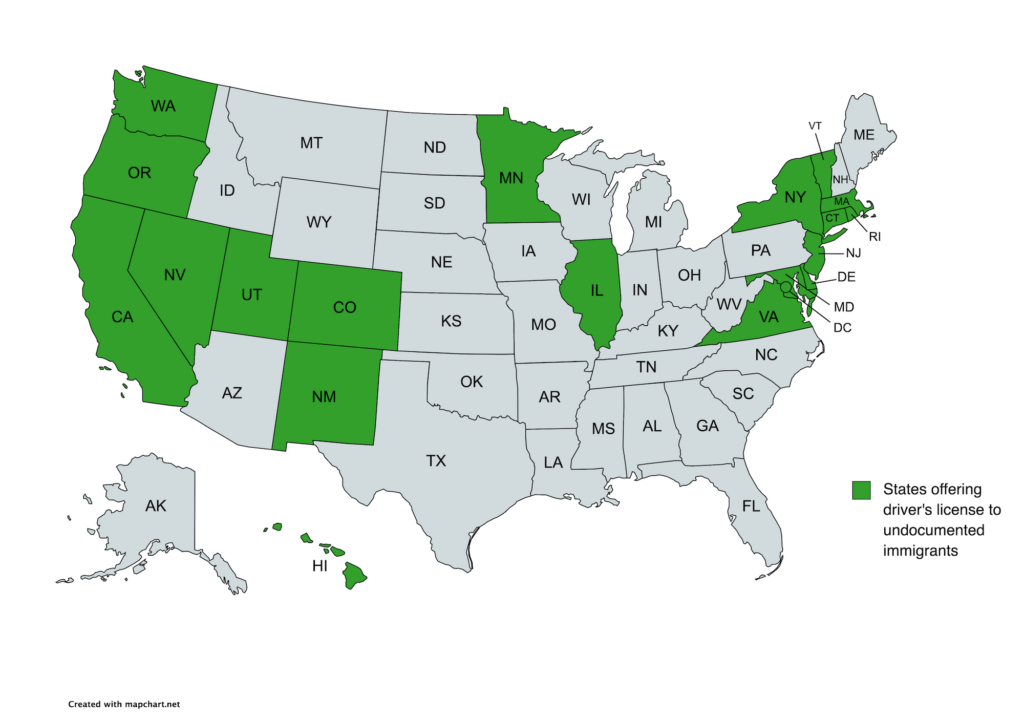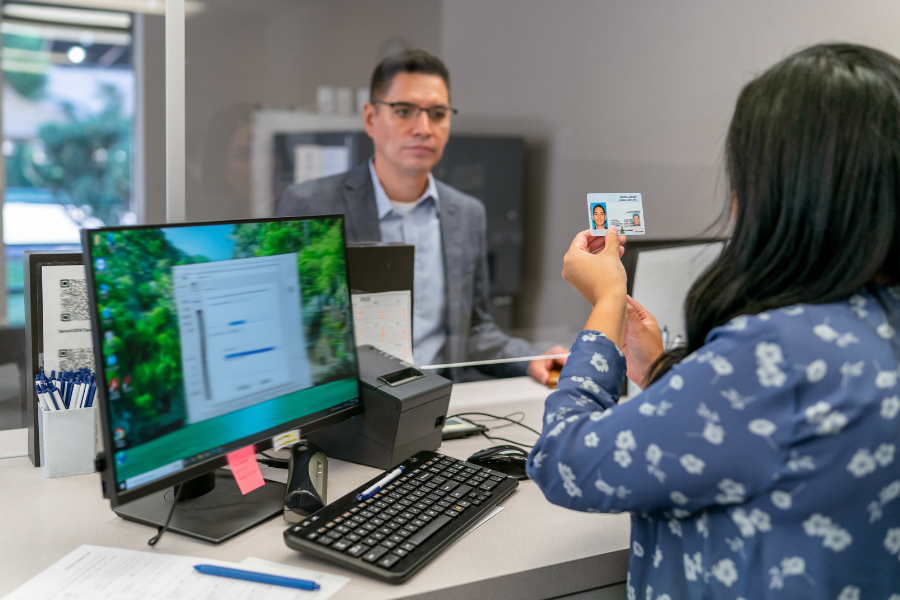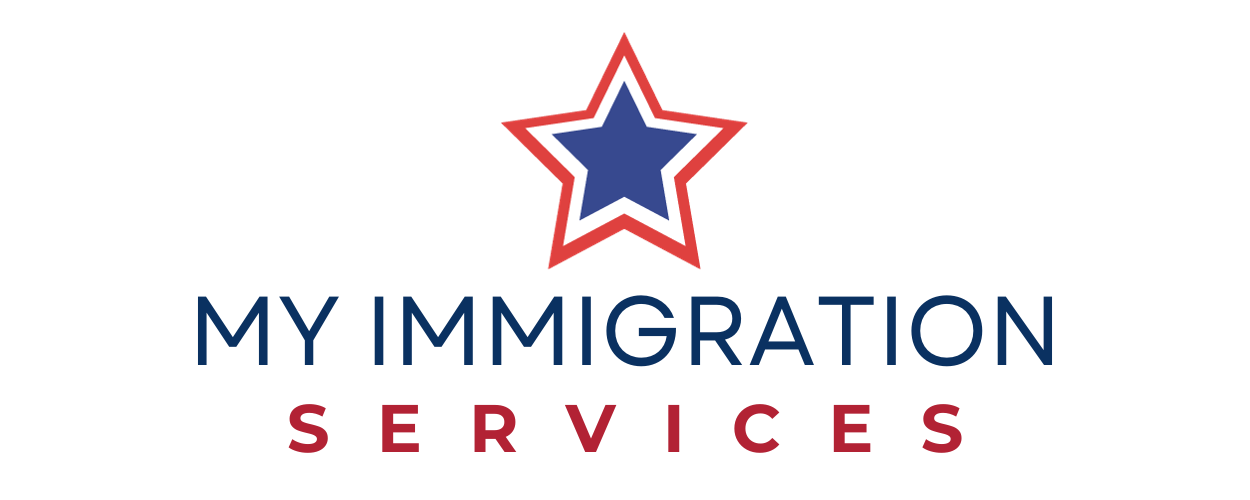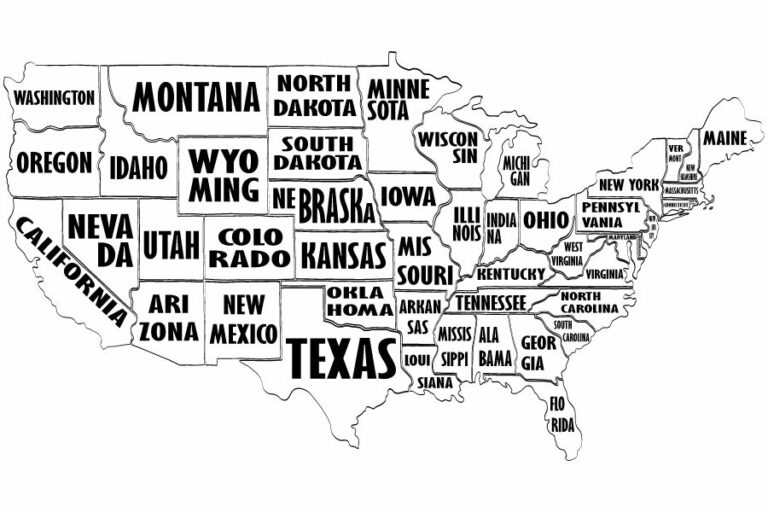Which States Can Undocumented Immigrants Get a Driver’s License?
A total of 19 states plus the District of Columbia have laws that let undocumented immigrants apply for a driver’s license.
These driver’s licenses may have certain restrictions, such as “not acceptable for official federal
purposes”, so it is important to understand the rules for each state.
Below is a list of all the states that give driver’s licenses to immigrants. Each state includes a list of requirements in order to obtain the license.
Which States Can Undocumented Immigrants Obtain a Driver’s License?
As of October 2023, the following states allow undocumented immigrants to get a driver’s
license.
- California
- Colorado
- Connecticut
- Delaware
- District of Columbia (DC)
- Hawaii
- Illinois
- Maryland
- Massachusetts
- Minnesota
- Nevada
- New Jersey
- New Mexico
- New York
- Oregon
- Rhode Island
- Utah
- Vermont
- Virginia
- Washington
Note: Rhode Island, Massachusetts, and Minnesota are the three latest states to allow
undocumented immigrants a driver’s license.

For more information, including the name of the bill for the law, the effective date of the bill, requirements and process to acquire a driver’s license, see sections below.
State Requirements & Steps
California
Bill: AB60
Effective Date: Jan 2, 2015
California allows undocumented immigrants to obtain a driver’s license under Assembly Bill 60 (AB 60), which became a law in 2015. These licenses are called “Driving Privilege Only” (DP) licenses.
Requirements:
- Proof of Identity: Such as a valid, unexpired passport or a consular ID.
- Proof of California Residency: Various documents can be used, like utility
bills, and rental or lease agreements.
Steps:
- Gather and verify all necessary documents that prove your identity and California
residency. - Applicants must pass the standard written knowledge test and a
driving test, just like any other driver’s license applicant. - You must also pass a vision test.
- Applicants must provide proof of auto insurance coverage, just like any other California driver.
Notes:
- The DMV cannot disclose information about an applicant’s immigration status to federal immigration authorities unless required by a court order or subpoena.
- DP licenses can not be used for identification purposes. Federal law requires the DP license to include a recognizable feature on the front of the card; California’s DP license includes the words “FEDERAL LIMITS APPLY” on the front of the card.
Colorado
Bill: SB 13-251
Effective Date: August 1, 2014
Colorado allows undocumented immigrants to obtain a driver’s license under specific conditions. The program was established through Senate Bill 13-251, often referred to as the Colorado Road and Community Safety Act (CO-RCSA).
Requirements:
- Proof of Identity: This could include a foreign passport or consular ID, etc.
- Proof of Residency: Utility bills, rent receipts, or other documents that show the applicant’s name and address.
- Proof of Tax Return: Applicants must provide their federal tax return as a part of the application.
- Social Security Number (if applicable): If the applicant has a Social Security Number, they must provide it.
Steps:
- Use the online scheduling system or call to make an appointment at a DMV office that provides driver licenses, permits, and IDs under CO-RCSA.
- Bring all necessary documents like proof of identity, proof of Colorado residency, and proof of tax return filing.
- You will need to successfully pass both written and road exams.
Note: The license obtained under SB 13-251 will be marked to indicate that it is not valid for federal identification, voting, or public benefit purposes.
Connecticut
Bill: H.B. 6495 (Public Act 13-89)
Effective Date: January 1, 2015
Connecticut allows undocumented immigrants to obtain a driver’s license through a program established by House Bill 6495.
Requirements:
- Proof of Identity: This may include a valid foreign passport or consular ID.
- Proof of Residency: Documents that verify Connecticut residency, such as utility bills or lease agreements.
Steps:
- Attend a driver’s education program or training, which may include safe driving practices, driver’s tests, and information related to driving laws and regulations in Connecticut.
- Gather and submit documentation that proves identity and residency.
- A written knowledge test of driving laws and road signs is needed to obtain a permit.
- A permit allows practice for the driving portion of the test.
- After passing the road test, and upon successful verification of documents and other requirements, a driver’s license is issued.
Notes:
- It is often referred to as a “Drive Only” license and is marked to indicate that it is not acceptable for official federal purposes. It may not be used for voting or proving identity where state or federal ID is required.
- This law excludes convicted felons.
Delaware
Bill: S.B. 59
Effective Date: December 27, 2015
Delaware allows undocumented immigrants to obtain a driving privilege card, which isn’t a full driver’s license but permits them to drive legally within the state. It was established through Senate Bill 59.
Requirements:
- Proof of Identity: Such as a valid foreign passport.
- Proof of Delaware Residency: Such as utility bills, rental agreements, etc.
- Proof of Income Tax Filings: Applicants must have filed Delaware income taxes.
Steps:
- Ensure all required documents (proof of identity, residency, and tax filing) are available and valid.
- Upon passing the knowledge test, a learner’s permit can be obtained, which allows driving under certain conditions.
- After fulfilling the learner’s permit requirements and completing the driving course, schedule a road test with the DMV.
- If all the above steps are successfully completed and the documents are verified, a driving privilege card is issued.
Notes:
- The driving privilege card is NOT a form of legal identification and cannot be used as a driver’s license for identification purposes or federal purposes like voting or accessing public benefits.
- The card is valid for four years and must be renewed in person.
District of Columbia (DC)
Bill: B20-275
Effective Date: May 1, 2014
The District of Columbia (Washington D.C.) allows undocumented immigrants to obtain a driver’s license through the “District of Columbia Driver’s Safety Amendment Act of 2013”. The special driver’s license for undocumented immigrants in D.C. is often referred to as a Limited Purpose Driver License.
Requirements:
- Proof of Identity: This can be a valid, unexpired passport from your country, consular ID, or other approved documents.
- Proof of Residency: Provide documents like utility bills or other official documents that show you have lived in D.C. for at least 6 months.
- Proof of Ineligibility for Social Security Number: You may be required to demonstrate that you do not qualify for a Social Security Number.
Steps:
- Once you learn the laws, visit the D.C. DMV Service Center with all your documents, where they will be reviewed and verified.
- Pass knowledge and vision tests to obtain a permit that allows you to practice driving under specified conditions.
- Complete a driving course to obtain the Limited Purpose Driver’s License.
Note:
- The Limited Purpose Driver’s License cannot be used for federal identification purposes or any purpose beyond driving.
- The card will be marked “Not valid for official federal purposes.”
Hawaii
Bill: H 1007
Effective Date: Jan 1, 2016
Hawaii allows undocumented immigrants to obtain a limited purpose driver’s license through the Act 172 law.
Requirements:
- Proof of Identity and Date of Birth: This can be a valid passport or consular ID.
- Proof of Residency: Documents to show Hawaii residency for at least one year. This might include lease agreements, utility bills, etc.
Steps:
- Provide documents proving identity and Hawaii residency are valid.
- Applicants must pass a road test.
Notes:
- The front side of the limited purpose driving license will have the stamp: “Not acceptable for official federal purposes.”
- Limited purpose driving license in Hawaii is valid for 8 years for those between ages 25 and 71.
- It is valid for 4 years if you are 24 or younger.
- It is valid for 2 years if you are 72 or older.
- The license is not valid for federal identification purposes or to establish eligibility for employment, voter registration, or public benefits.
Illinois
Bill: S.B. 957
Effective Date: November 28, 2013
Illinois provides a Temporary Visitor Driver’s License (TVDL) for undocumented immigrants and other non-visa status individuals who have resided in Illinois for more than a year. The program was established via the “Highway Safety for All Illinois Drivers” legislation.
Requirements:
- Proof of Identity and Date of Birth: This can be a valid passport or consular ID.
- Proof of Residency: Documents to show Illinois residency for at least one year. This might include lease agreements, utility bills, etc.
- For individuals filing taxes, the last year’s state tax return may be required.
Steps:
- Schedule an appointment at one of the designated Secretary of State facilities that issue TVDLs.
- Ensure all required documents are available and authentic, which will be verified through a specialized anti-fraud verification system.
- Understand Illinois driving laws and signs to successfully pass a written test and a road test.
Notes:
- The TVDL is visually distinct from the regular driver’s license and carries a notice that it is not valid for identification purposes.
- It cannot be used to board a plane, enter federal buildings, or verify your identity to local law enforcement outside of driving verification.
- It is valid for driving purposes exclusively within the state of Illinois.
- It is available regardless of immigration status and is also issued to foreign students, spouses, and children.
- Valid for 3 years
Maryland
Bill: S.B. 715
Effective Date: January 1, 2014
Maryland allows undocumented immigrants to obtain a special type of driver’s license under certain conditions. The Motor Vehicle Administration (MVA) in Maryland can issue a Federal Non-Compliant Driver’s License or Identification Card, often referred to simply as a non-compliant license or card, to applicants who do not have a lawful status in the United States or a Social Security Number.
Requirements:
- Proof of Identity: Such as a valid, unexpired foreign passport.
- Two-Year Proof of Maryland Residency: Documents such as utility bills, lease agreements, etc.
- Proof of Tax Filings: Usually for the past two years through the Maryland Comptroller’s Office.
Steps:
- Once you have all documents, apply for a Learner’s Instructional Permit.
- This involves passing a vision test and a knowledge test.
- For the knowledge test, it’s important to understand driving rules, signs, and laws in Maryland.
- After passing the tests, a learner’s permit will be issued which allows the individual to drive with a supervising experienced driver.
- Once ready, schedule and pass a driving skills test with the Maryland MVA.
- After passing the skills test, a provisional license will be issued.
- After maintaining the provisional license without any violations for a set period, it can be converted into a full non-compliant driver’s license.
Notes: The Federal Non-Compliant Driver’s License is not valid for federal identification purposes (e.g., for boarding federally regulated commercial aircraft).
Massachusetts
Bill: HB 4805
Effective Date: July 1, 2023
The Work and Family Mobility Act (WFMA) authorizes the issuance of driver’s licenses to applicants even if they cannot provide proof of lawful presence or if they are ineligible for a social security number.
Requirements:
- Proof of Identity and Birthday: Two documents that include full name and birth date. Such as a valid passport from your country or a consular ID.
- Proof of Residency: Documents that verify your Massachusetts residency.
- Proof of Social Security Status: Applicants must (1) provide a social security number (SSN card not necessary), (2) present a denial letter from the Social Security Administration, or (3) present a foreign passport or consular ID to meet document requirements, you may complete an Affidavit of No SSN stating that you have never been issued a social security number.
Steps:
- Once all required documents are verified, you must visit the service center to apply for the driver’s license.
- Applicants must pass a vision exam, a learner’s permit written exam, and a road skills exam.
Minnesota
Bill: HB 4/SB 27
Effective Date: October 1, 2023
Minnesota’s “Driver’s License For All” allows undocumented immigrants to take the driver’s skills test and receive a driver’s license. The applicant must submit proof of identification which can include a foreign passport, birth certificate or adoption certificate, as well as a secondary document proving residence in the state. The license must be marked “not for federal identification” and contain no information regarding the lawful presence of the driver’s license holder.
Requirements:
- Two Proof of Identity: Two documents that include full name and birth date. Such as a valid passport from your country or a consular ID.
- Proof of Residency: Documents that verify your Minnesota residency.
Steps:
- Ensure all necessary documents proving identity and residency are ready and valid.
- Applicants must pass a written knowledge exam and skills road test to obtain a driver’s license.
Notes: Valid for 4 years.
Nevada
Bill: S.B. 303
Effective Date: January 2, 2014
Nevada allows undocumented immigrants to obtain a Driver Authorization Card (DAC), which allows them to drive legally within the state.
Requirements:
- Proof of Identity: Such as a valid passport from your country or a consular ID.
- Proof of Residency: Documents that verify your Nevada residency.
Steps:
- Ensure all necessary documents proving identity and residency are ready and valid.
- Study the Nevada Driver’s Handbook to understand driving laws, rules, and signs in the state.
- You’ll need to pass a knowledge test and a vision test at the DMV.
- After passing the tests, an instruction permit might be issued, allowing you to practice driving under certain conditions.
- Upon passing the driving skills test and with all documents verified, you will be issued a Driver Authorization Card.
Notes:
- The Driver Authorization Card (DAC) is not valid for official identification purposes and cannot be used to enter federal buildings, board airplanes, or anything that requires a federally approved ID.
- Valid for one year and can be renewed.
New Jersey
Bill: A4743
Effective Date: January 1, 2021
New Jersey allows undocumented immigrants to obtain a standard driver’s license under the “New Jersey Driver’s License Access and Privacy Act,” commonly referred to as the Green Light Law. It became effective on May 1, 2021.
Requirements:
- Proof of Identity: Such as a valid passport from your country or a consular ID.
- Proof of Residency: Documents that verify your New Jersey residency.
Steps:
- Ensure all necessary documents proving identity and residency are ready and valid.
- Study the New Jersey Driver Manual to understand driving laws, rules, and signs in the state.
- You’ll need to pass a knowledge test and vision test at the MVC.
- After passing the tests, you can apply for a permit which allows you to practice driving under certain conditions.
- Upon passing the road test and with all documents verified, you will be issued a standard driver’s license.
Notes: The standard driver’s license obtained under the Green Light Law is not valid for federal identification purposes (e.g., for boarding federally regulated commercial aircraft, entering federal facilities, etc.).
New Mexico
Bill: None (New Mexico has allowed undocumented immigrants to obtain a driver’s license without a specific bill on this issue)
Effective Date: No specific date due to the lack of a specific bill
New Mexico allows undocumented immigrants to obtain a driving authorization card (DAC) that enables them to drive legally within the state.
Requirements:
- Proof of Identity: Such as a valid passport from your country or a consular ID.
- Proof of Residency: Documents that verify your New Mexico residency.
Steps:
- Ensure all necessary documents proving identity and residency are ready and valid.
- Study the New Mexico Driver’s Manual and prepare for a written test to demonstrate your knowledge of state driving laws, signs, and rules.
- You also need to pass a vision test. Once you pass the tests, you can apply for a DAC, which allows you to drive in the state.
Notes:
- The Driving Authorization Card (DAC) is not valid for official federal identification purposes and cannot be used for activities like boarding an airplane or entering federal buildings.
- It is valid for driving and can serve as an ID for state-level interactions.
New York
Bill: A3675B/S1747B, also known as the “Green Light Law”
Effective Date: December 14, 2019
New York State allows undocumented immigrants to obtain driver’s licenses through the “Driver’s License Access and Privacy Act,” also known as the Green Light Law, which took effect on December 16, 2019.
Requirements:
- Proof of Identity: Such as a valid, unexpired foreign passport or a consular ID.
- Proof of Residency: Documents that verify your New York State residency.
Steps:
- Ensure you have valid and verifiable documents for identity and residency.
- Study the New York State Driver’s Manual and take a written test to showcase your knowledge of state driving laws, signs, and rules.
- You’ll also need to pass a vision test.
- After passing the tests, you will be issued a temporary pre-learner’s permit.
- Upon passing the road test and with all documents verified, you will be issued a driver’s license.
Notes:
- The driver’s license obtained under the Green Light Law is not valid for federal identification purposes (e.g., for boarding federally regulated commercial aircraft, entering federal facilities, etc.).
- It can be used for driving and as a form of identification for state-level interactions.
Oregon
Bill: HB 2015
Effective Date: January 1, 2021
Oregon allows undocumented immigrants to obtain a driver’s license. The state provides “Driver Privilege Cards” for individuals who cannot provide proof of legal presence in the United States. This policy was implemented under the “Safe Roads Act,” which was passed by the Oregon Legislature in 2019.
Requirements:
- Proof of Identity: Such as an unexpired passport or consular ID card.
- Proof of Residency: Documents that verify your Oregon residency, like utility bills or rental agreements.
Steps:
- Gather all necessary documents that prove your identity and residency in Oregon.
- Study the Oregon Driver Manual to understand the driving laws, signs, and rules in the state.
- You will need to pass a knowledge test at the DMV.
- You will also need to pass a vision test.
- After passing the tests, you may be issued an instruction permit, which allows you to practice driving under certain restrictions.
- Once you pass the road test and your documents are verified, you can be issued a Driver Privilege Card.
Notes:
- The Driver Privilege Card is not valid for official federal identification purposes (such as boarding federally regulated commercial aircraft or entering federal facilities).
- It is valid for driving and can be used as ID for state-level interactions.
Rhode Island
Bill: S 206/H 7939
Effective Date: July 1, 2023
This law allows any person who is unable to establish legal presence in the U.S. but meets requirements such as presenting proof of identity, proof of residency and not violating insurance requirements, to receive a Driver Privilege Card (DPC) or permit if the Division of Motor Vehicles deems them eligible.
Requirements:
- Must have either filed a Rhode Island resident personal income tax return in the prior tax year or been claimed as a dependent on one.
- Two Proofs of Identity: Such as an unexpired passport or consular ID card.
- Two Proofs of Residency: Documents that verify your Rhode Island residency, like utility bills or rental agreements.
Steps:
- Once all required documents are verified, you must schedule a reservation for a Driver Privilege Card (DPC) on their website.
- Applicants 18 and older can make a DPC reservation and take the permit test (knowledge exam).
- If they pass, they will be issued a learner’s permit and can schedule a road test at that time or choose to self-schedule online.
- Once you pass the road exam, you will be issued the Driver Privilege Card (DPC).
Notes: If you have a Driver Privilege Card from another state, it can be transferred to a Rhode Island DPC.
Utah
Bill: 53-3-227
Effective Date: Jan 2, 2015
Utah allows undocumented immigrants to obtain a “Driving Privilege Card” (DPC) that enables them to drive legally within the state.
Requirements:
- Proof of Identity: Such as a valid passport from your country or a consular ID.
- Proof of Residency: Documents that verify your Utah residency.
Steps:
- Ensure all necessary documents proving identity and residency are ready and valid.
- Study the Utah Driver Handbook and prepare for a written test to demonstrate your knowledge of state driving laws, signs, and rules.
- You’ll need to pass a test specifically about the DPC laws and a road test.
- You will be fingerprinted and have your photograph taken.
- Once all tests are passed, documents are verified, and other requirements are fulfilled, you can be issued a Driving Privilege Card.
Notes:
- The Driving Privilege Card (DPC) is not valid for official identification purposes and cannot be used to board an airplane or enter federal buildings.
- The card is marked “FOR DRIVING PRIVILEGES ONLY–NOT VALID FOR IDENTIFICATION.”
- Must be renewed every year.
Vermont
Bill: S.38 Act 74
Effective Date: January 1, 2014
Vermont allows undocumented immigrants to obtain a driver’s privilege card that allows them to drive legally within the state.
Requirements:
- Proof of Identity: Such as a valid passport from your country or a consular ID.
- Proof of Residency: Documents that verify your Vermont residency.
Steps:
- Ensure all necessary documents proving identity and residency are ready and valid.
- Study the Vermont Driver’s Manual and take a written test to demonstrate your knowledge of Vermont driving laws, signs, and rules.
- You also have to pass a vision test.
- After passing the knowledge and vision tests, you will be issued a learner’s permit, which allows you to practice driving with a licensed adult in the vehicle.
- Once you pass the road test and your documents are verified, you can be issued a Driver’s Privilege Card.
Notes:
- The Driver’s Privilege Card is not valid for official federal identification purposes (such as boarding federally regulated commercial aircraft or entering federal facilities).
- It is valid for driving within Vermont and can be used for identification at the state level.
- Expires at midnight the night before the applicant’s second birthday since obtaining the card.
Virginia
Bill: HB 1211/SB 34
Effective Date: Jan 1, 2021
Virginia allows undocumented immigrants to obtain a driver’s license, referred to as “new driver privilege cards” (DPC).
Requirements:
- Two Proofs of Identity: Such as a valid passport from your country or a consular ID.
- Two Proofs of Residency: Documents that verify your Virgina residency.
- Must have filed Virginia taxes or have been reported as a dependent on Virginia taxes within the year.
- Valid evidence the applicant is authorized to be in the United States for at least 30 days from the application date.
- If the applicant has a social security number or individual taxpayer identification number, they will provide proof.
Steps:
- The first step is to fill out a Form DL10 – Driver and Identification Privilege Card Application.
- Along with your application, you will need to submit the required documents verifying your eligibility, pass a vision test, and pay the $53 application fee.
- You must pass the computer knowledge test.
- A driver privilege learner’s permit will be issued if necessary.
- Applicants 18 or older may choose between holding their learner’s permit for 2 months and then passing a road test at the DMV or completing an adult driver’s education course (in which case both the DMV road test and 2-month requirement are waived).
Note: Valid for 2 years.
Washington
Bill: None (Washington has allowed undocumented immigrants to obtain a driver’s license without a specific bill on this issue)
Effective Date: No specific date due to the lack of a specific bill
Washington State allows undocumented immigrants to obtain a driver’s license, referred to as a “Standard Driver License” under its law.
Requirements:
- Proof of Identity: Such as a valid passport from your country or a consular ID.
- Proof of Residency: Documents that verify your Washington State residency.
Steps:
- Ensure all necessary documents proving identity and residency are ready and valid.
- Study the Washington State Driver Guide and prepare to take a written test to demonstrate your knowledge of state driving laws, signs, and rules.
- There is also a vision test. Depending on the situation, you might get an instruction permit first to practice driving.
- Once you pass the road test and your documents are verified, you will be issued a standard driver’s license.
Notes:
- The standard driver’s license is not valid for official federal identification purposes (e.g., for boarding federally regulated commercial aircraft, entering federal buildings, etc.).
- It can be used for driving and as a form of identification for state-level interactions.
Why Some States Allow Illegal Immigrants to Get a Driver’s License
Some states allow undocumented immigrants to obtain driver’s licenses to improve public safety and ensure that all drivers on the road are tested, licensed, and insured. When undocumented immigrants can legally drive, they’re more likely to understand local traffic laws, less likely to flee from accidents, and able to purchase car insurance. Additionally, these policies support better integration into the community and economy by allowing individuals to commute to work, school, and other essential activities.
Standard Driver’s License vs. Driving Privilege Card
A standard driver’s license is a universally recognized document that verifies both identity and driving privileges and can be used for federal identification purposes, assuming it is REAL ID-compliant.
On the other hand, a driving privilege card for undocumented immigrants serves solely as a permit to drive and cannot be used as a form of federal identification. These privilege cards ensure that holders have passed relevant driving tests and have the necessary insurance, but they may have different visual characteristics to distinguish them from standard licenses.
Risks for Undocumented Immigrants to Apply for Driver’s License
Applying for a driver’s license could pose legal risks for undocumented immigrants, depending on the state’s policies and data-sharing practices. While applying, they must provide personal information, which could theoretically be accessed by federal immigration authorities. Some states have enacted privacy protections to prevent this data from being used for immigration enforcement purposes. However, there’s always a possibility of policy changes, and data could be vulnerable if these protections are altered in the future. Therefore, undocumented immigrants are advised to stay informed about their state’s policies and consult with legal advocates if necessary.
Related: The 11 Sanctuary States

FAQs
Yes, undocumented immigrants can obtain a “Driving Privilege Only” (DP) license in California. They must provide proof of California residency and proof of identity.
No, Florida does not offer a driver’s license for undocumented immigrants who can not provide proof of lawful presence in the United States. However, Massachusetts driver’s licenses will continue to be accepted in Florida, even with the state’s recent legislation that disallows acknowledgment of licenses from states granting driving privileges to undocumented individuals.
Florida Governor Ron DeSantis enacted Senate Bill 1718, which took effect on July 1, 2023. A key component of this legislation is that Florida will cease to acknowledge driver’s licenses issued by states that intentionally grant them to undocumented immigrants.
No, driver’s licenses issued to undocumented immigrants cannot be used for federal identification purposes. These licenses or alternative driving documents are often visually distinct and clearly state they are not valid for federal identification. This restriction means they cannot be used for activities such as boarding airplanes or entering federal buildings, which require federally recognized identification like a passport or a REAL ID-compliant driver’s license.
Yes, you will be able to drive in the state that provided the driver’s license, but it won’t be accepted for air travel.
In the U.S., some states let undocumented immigrants get a driver’s license. This approach makes the roads safer and helps these residents live a normal life. But the rules aren’t the same everywhere, so it’s important to understand what’s allowed in each state.







